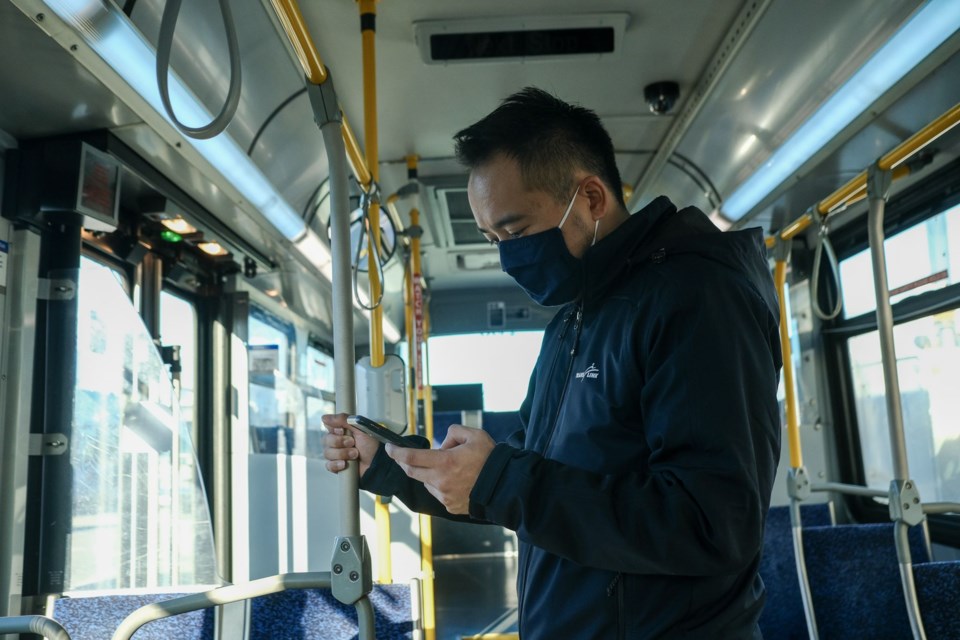Richmond riders who use transit this Sunday may see copper surfaces installed on select buses and SkyTrain cars as part of TransLink’s new pilot project.
This project was brought into reality through a partnership between Teck Resources Limited, a Vancouver-based natural resource company, and TransLink. According to TransLink CEO Kevin Desmond, it would be the first time a North American transit agency used antibiotic copper and a protective coating named organosilane on buses and skytrain cars to keep transit users safe.
“We are doing this because research has shown an organosilane coating provides long-lasting protection against bacteria and because copper has self-sanitizing properties which can kill up to 99.9 per cent of all viruses and bacteria on its surface. And, yes, we believe this can include COVID-19,” said Desmond.
“Our four-week pilot project will begin this Sunday, Nov. 15 and we will test the effectiveness of these virus-killing products on high-touch transit surfaces.”
TransLink will test the copper products on two trolley buses in Vancouver and two SkyTrain cars on the Expo and Millennium Lines. Once the project is completed, TransLink will share their findings and results with other industry-leading initiatives to ensure that other transit systems could benefit from the data.
The pilot project will cost $90,000, which will be covered by Teck Resources Limited, according to Don Lindsay, president and CEO of Teck Resources Limited.

.png;w=120;h=80;mode=crop)

